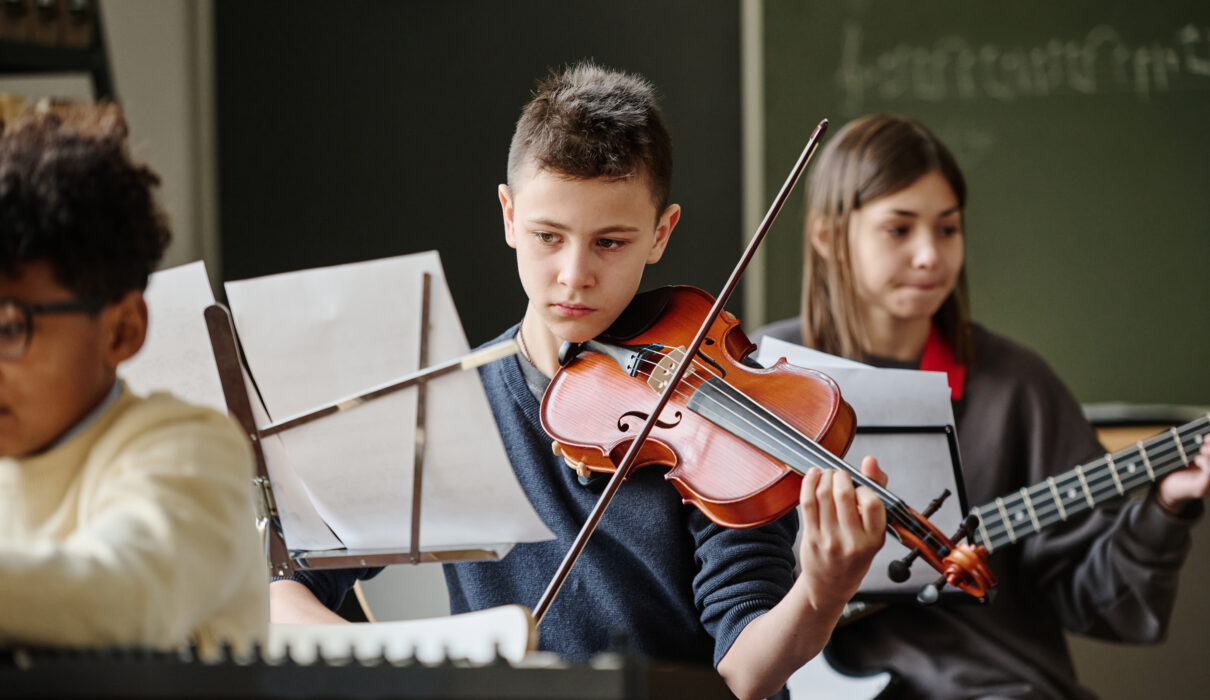What are the real effects of classical music? What is real and what is myth? In this article we will tell you!
We have all heard at some point that classical music stimulates learning, both in adults and children. Evidence has been found that being in contact with music from an early age helps us develop certain abilities. However, is it true that classical music stimulates learning?
The answer is very simple: yes. The relationship between active listening to classical music and good academic results in children and young people is more than evident. This type of music stimulates brain functions related to learning, memory and the ability to concentrate . Similarly, its benefits are also notable in language acquisition processes, as children see an increase in their vocabulary and greater ease in linguistic expression.
Classical music stimulates learning and cognitive skills
However, it doesn’t end there. It has also been proven that classical music helps children improve their cognitive and emotional skills . Mainly, those related to empathy, since children who listen to this type of music are more skilled at picking up on different nuances in moods. Without a doubt, this is a great advantage when it comes to facing the social relationships that await them in the outside world.
Another aspect to highlight is the development of creativity , since classical music stimulates the imagination and sensitivity, not to mention its effect on our mood . There are even studies that show that a child’s tantrum can be resolved quickly with the right music.
This is what a study published by scientists from Radboud University in the Netherlands in collaboration with the University of Technology in Sydney suggests. It highlights an important nuance: the benefits of music depend on the type of thinking required by the task we are performing.
The results of the study showed that in cases where convergent thinking is necessary (finding a solution to a problem), it is preferable to carry out the task in silence. However, for those tasks where divergent thinking comes into play (generating new ideas), music is the perfect accompaniment. And the more cheerful, the better.
Benefits of listening to classical music
In addition to stimulating learning in children and young people, it is worth highlighting a good number of benefits that classical music provides and that have been more than proven:
- It influences mood, helping to reduce pain and anxiety .
- Helps combat insomnia .
- Improves the ability to learn new languages .
- It has a positive influence on the treatment of diseases such as Alzheimer’s, Tourette’s syndrome or Parkinson’s disease.
- Reduces stress and blood pressure.
- Helps improve academic results .
- It influences overcoming dyslexia.
- Increases physical resistance .
- Stimulates fetal development during pregnancy.
- Improves memory, attention and concentration capacity.
Effects of classical music on the brain
Beyond the benefits of classical music on learning and mood, there is a branch of research that investigates the effects of music at a molecular level. This is starting to become possible thanks to studies such as that of a Finnish research group that discovered that listening to classical music affects gene expression profiles in both expert and amateur music subjects.
The study involved listening to the Violin Concerto in G Major by WA Mozart by all participants . The results showed that listening enhances the activity of genes involved in the secretion and transport of dopamine and synaptic function. These genes are also involved in the learning of songs and bird song, suggesting a common evolutionary background between species in the perception of these types of sounds.
Specifically, one of the genes whose expression increased is alpha synuclein (SNCA), a gene involved in diseases such as Parkinson’s. This gene is located in the region most strongly linked to musical ability.
On the other hand, the researchers argue that, based on the study, listening to classical music causes a decrease in the expression of genes related to neurodegeneration. In this way, it could have been demonstrated that music plays a neuroprotective role in our brain .


